April/ Abril/ April/ Abril
1. Berlin – Eine postkoloniale Metropole. Ein historisch-kritischer Stadtrundgang im Bezirk Mitte. Oumar Diallo & Joachim Zeller. Anita Kochnowski (Hrsg.), Ingrid Schiborowski (Hrsg.). Metropol. 2021.
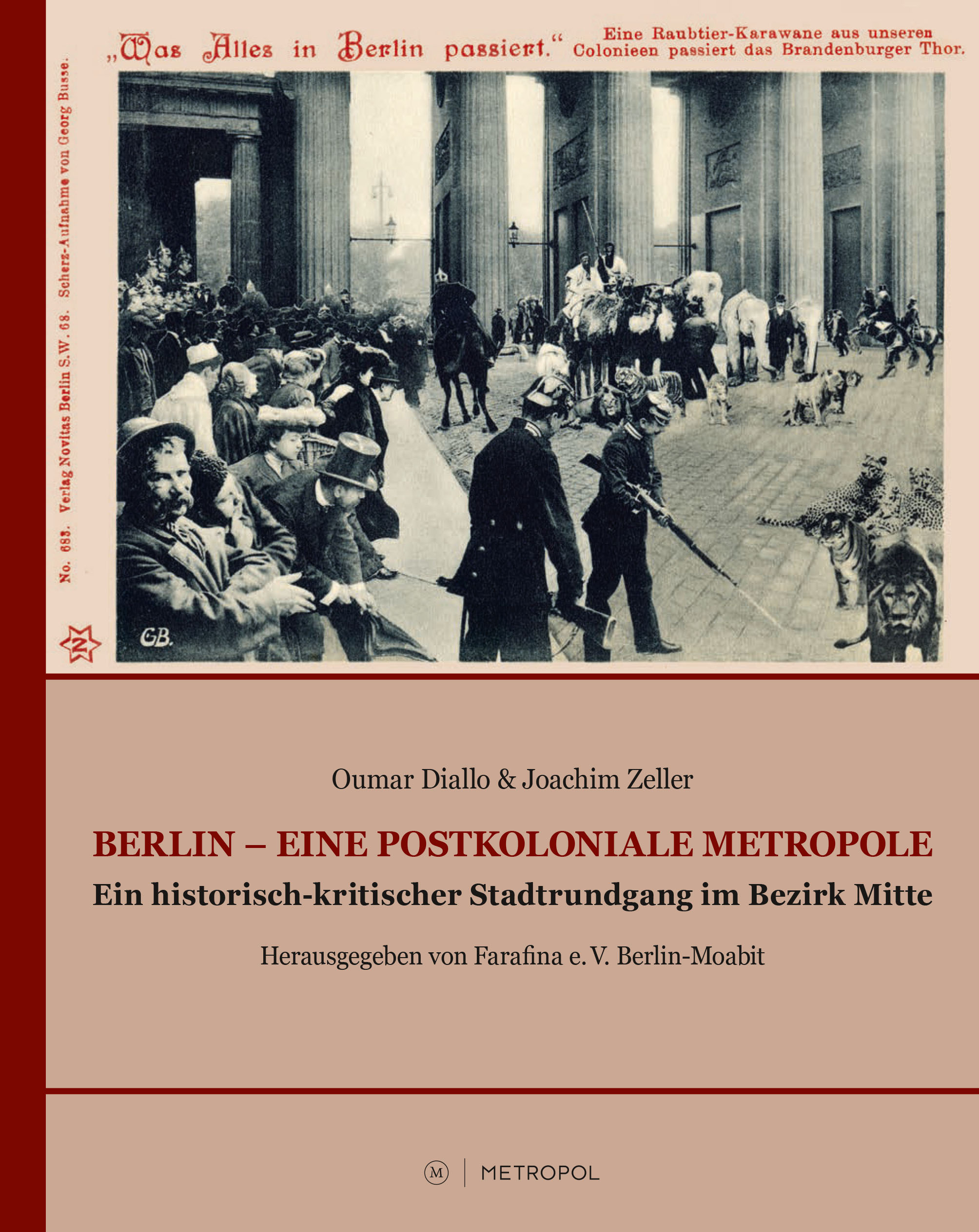 Um 1900 hatte Berlin kurzzeitig die Rolle als Zentrum des deutschen Kolonialimperialismus inne. Nach dem Ersten Weltkrieg formierte sich hier die kolonialrevisionistische Bewegung, die das „geraubte“ deutsche Kolonialreich in Übersee zurückforderte. Heute ist die lokale Globalgeschichte der postkolonialen Metropole Berlin weitgehend in Vergessenheit geraten. Der Stadtführer, der sich auf den Bezirk Mitte konzentriert, stellt eine Auswahl bedeutsamer kolonialhistorischer Erinnerungsorte vor. Er möchte eine kritische Auseinandersetzung mit der kolonialen Vergangenheit Deutschlands anregen und einen Beitrag zu einer kosmopolitisch und integrativen Erinnerungskultur leisten.
Um 1900 hatte Berlin kurzzeitig die Rolle als Zentrum des deutschen Kolonialimperialismus inne. Nach dem Ersten Weltkrieg formierte sich hier die kolonialrevisionistische Bewegung, die das „geraubte“ deutsche Kolonialreich in Übersee zurückforderte. Heute ist die lokale Globalgeschichte der postkolonialen Metropole Berlin weitgehend in Vergessenheit geraten. Der Stadtführer, der sich auf den Bezirk Mitte konzentriert, stellt eine Auswahl bedeutsamer kolonialhistorischer Erinnerungsorte vor. Er möchte eine kritische Auseinandersetzung mit der kolonialen Vergangenheit Deutschlands anregen und einen Beitrag zu einer kosmopolitisch und integrativen Erinnerungskultur leisten.
2. La forja solidària d’un barri portuari. La Barceloneta obrera i cooperativa. Alari, Emma; Gorostiza, Santiago; Dalmau, Marc (ed.). La ciutat invisible. 2017.
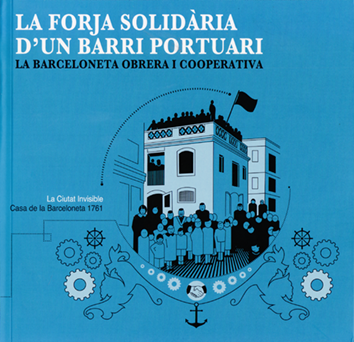 La península portuària de la Barceloneta fou edificada per prescripció militar sota l’ègida de la Ciutadella després de la Guerra de Successió. Erigida fora muralles sobre terrenys directament guanyats al mar, el nou barri de la platja nasqué inicialment amb una limitació en l’alçaria dels edificis per mantenir la línia de tir cap a la costa. Aviat, però, el desbordant creixement urbanístic de la Barcelona vella, associat a l’esponerós procés industrialitzador, féu augmentar la necessitat d’espais perifèrics per ubicar-hi les fàbriques. Aquelles circumstàncies, unides a la condició portuària, i per tant, fronterera del barri, procuraren no tan sols l’eliminació de les restriccions constructives, sinó l’aposta cap a un model de creixement urbanístic il·limitat.
La península portuària de la Barceloneta fou edificada per prescripció militar sota l’ègida de la Ciutadella després de la Guerra de Successió. Erigida fora muralles sobre terrenys directament guanyats al mar, el nou barri de la platja nasqué inicialment amb una limitació en l’alçaria dels edificis per mantenir la línia de tir cap a la costa. Aviat, però, el desbordant creixement urbanístic de la Barcelona vella, associat a l’esponerós procés industrialitzador, féu augmentar la necessitat d’espais perifèrics per ubicar-hi les fàbriques. Aquelles circumstàncies, unides a la condició portuària, i per tant, fronterera del barri, procuraren no tan sols l’eliminació de les restriccions constructives, sinó l’aposta cap a un model de creixement urbanístic il·limitat.
Sense res més que la força de treball, el proletariat barcelonetí s’anà apropiant del barri, a força de viure-hi, a partir de la protesta quotidiana, el suport mutu i la solidaritat. Mijantçant la creació d’institucions associatives pròpies resolgué necessitats en tots els àmbits de la vida, que desembocaren en la generació d’una esfera pública proletària que estigué fins i tot en condicions de reptar l’ordre social capitalista. Les cooperatives de consum com La Fraternitat o El Segle XX foren organismes econòmics que constituïren pedres angulars d’aquell engranatge, un mecanisme d’autogestió col·lectiva que sadollà les carències col·lectives com una màquina de reproducció social de la vida.
3. Why I’m No Longer Talking to White People About Race. Reni Eddo-Lodge. Bloomsbury USA. 2018.
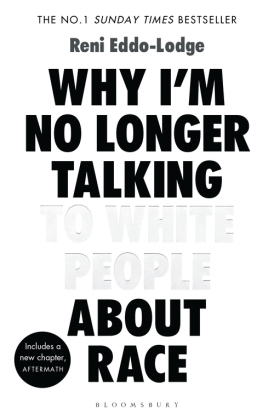 Every voice raised against racism chips away at its power. We can’t afford to stay silent. This book is an attempt to speak‘ The book that sparked a national conversation. Exploring everything from eradicated black history to the inextricable link between class and race. Why I’m No Longer Talking to White People About Race is the essential handbook for anyone who wants to understand race relations in Britain today.
Every voice raised against racism chips away at its power. We can’t afford to stay silent. This book is an attempt to speak‘ The book that sparked a national conversation. Exploring everything from eradicated black history to the inextricable link between class and race. Why I’m No Longer Talking to White People About Race is the essential handbook for anyone who wants to understand race relations in Britain today.
4. Salvador Puig Antich – Guerrilla anticapitalista contra el franquismo. Obra colectiva coordinada por Ricard de Vargas Golarons. Descontrol. 2021.
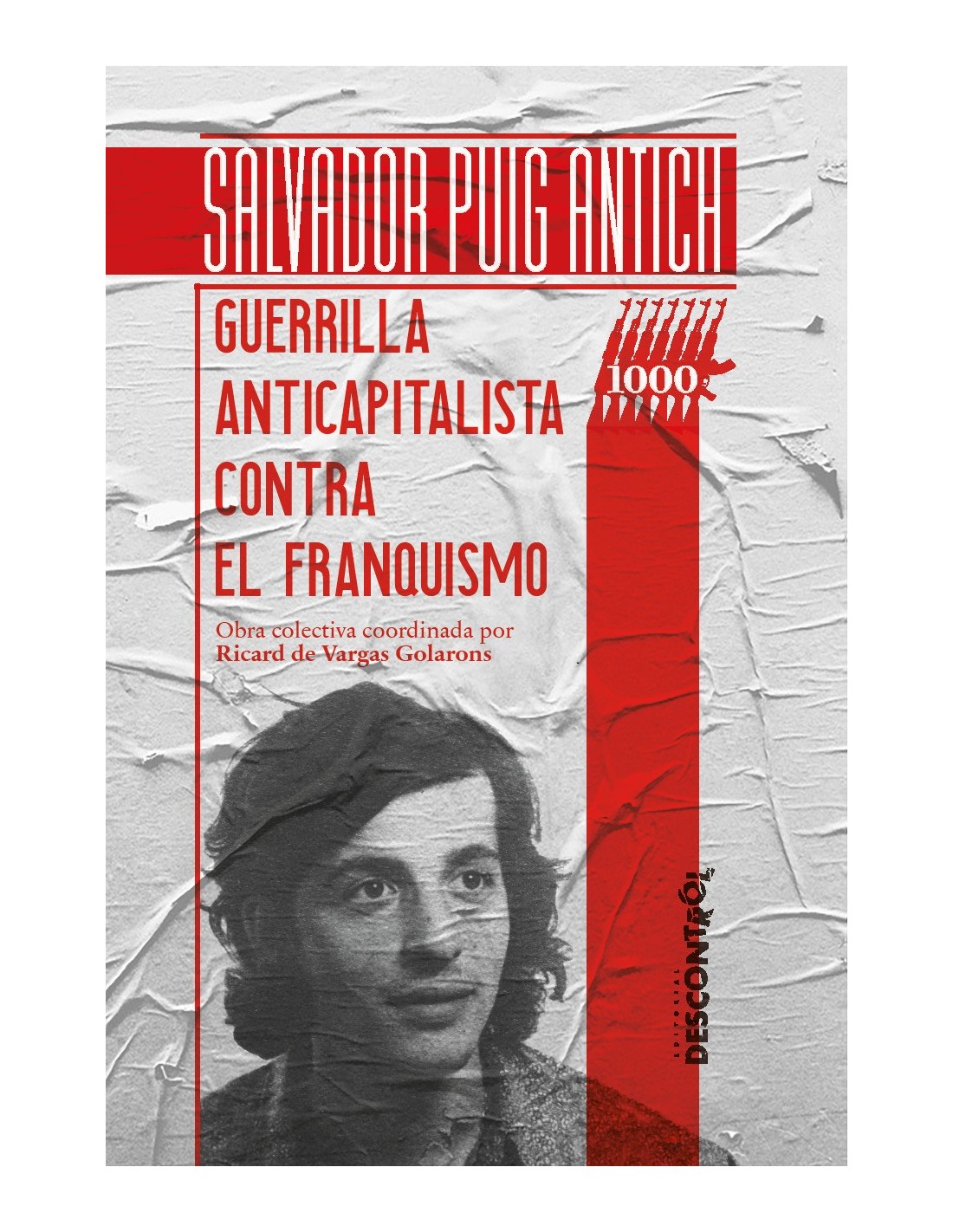 “Desde aquel triste 2 de marzo de 1974, en que el verdugo segó la vida de nuestro hermano, juramos, casi sin palabras, que reivindicaríamos la memoria de Salvador como la de un joven idealista de buenos sentimientos, con un gran sentido de justicia, consecuente y profundamente comprometido. No dejaríamos nunca que pasara a la historia como un asesino y quemador de bosques, que era como el régimen franquista lo había presentado a través de los medios de comunicación en aquellos días nefastos. Aquella mentira solo era para tapar su brutal crueldad.”Imma, Montse, Carme y Merçona Puig Antich.
“Desde aquel triste 2 de marzo de 1974, en que el verdugo segó la vida de nuestro hermano, juramos, casi sin palabras, que reivindicaríamos la memoria de Salvador como la de un joven idealista de buenos sentimientos, con un gran sentido de justicia, consecuente y profundamente comprometido. No dejaríamos nunca que pasara a la historia como un asesino y quemador de bosques, que era como el régimen franquista lo había presentado a través de los medios de comunicación en aquellos días nefastos. Aquella mentira solo era para tapar su brutal crueldad.”Imma, Montse, Carme y Merçona Puig Antich.
Cuando hace casi 50 años del asesinato de Salvador, conviene recuperar su memoria, tergiversada y manipulada por el Poder. Por su integridad personal, por su honestidad política, por su convicción revolucionaria y por su determinación luchadora es imprescindible reivindicar las aportaciones anticapitalistas y de transformación social negadas tanto por los franquistas.
5. George Floyd uprising reader vol 1 Insurgency and Beyond and vol 2 Belligerent Identities in the Face of Counter-Insurgency. Anonymous. 2021.
A group of anarchists and autonomists in the Bay Area/occupied Ohlone land have collected these writings animated by the 2020 uprisings which ignited the so-called United States after the police murder of George Floyd. Our intention is that this reader inspires people everywhere to engage in deeper conversations about all aspects of the uprising, including its significance and context to the US Black Liberation struggle. We believe these discussions are vital to shaping ongoing and future struggles, improving tactics, and rendering ineffective the insidious narratives that aim to crush our collective power.
We have organized these selected writings into two volumes:
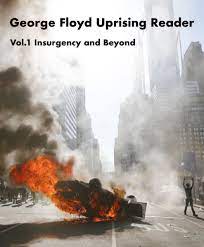
Volume 1: Insurgency and Beyond shares on-the-ground accounts from various sites of struggle: the challenges faced, victories won, analysis sharpened, and lessons learned. Each writing, specific to its physical and cultural landscape, affirms the necessity of insurrection while grappling with its impermanent nature and the questions of how we move forward together from such eruptions.
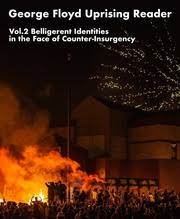 Volume 2: Belligerent Identities in the Face of Counter-Insurgency examines identity politics, Black anarchists’ role in the uprisings, the racialized nature of “looting”, among other dynamics. The concept of Belligerent Identities is taken from the Latin Bellum Gerere which translates as “to wage war”, a term for guerrilla soldiers used by the state. If a belligerent identity is that of the enemy combatant, then we seek to reclaim and weaponize this term. The writings in this volume speak to how the far-right, police, state, media, and liberals use everything from live ammunition to tired rhetoric to douse the flames of rebellion and diffuse the potentials of solidarity.
Volume 2: Belligerent Identities in the Face of Counter-Insurgency examines identity politics, Black anarchists’ role in the uprisings, the racialized nature of “looting”, among other dynamics. The concept of Belligerent Identities is taken from the Latin Bellum Gerere which translates as “to wage war”, a term for guerrilla soldiers used by the state. If a belligerent identity is that of the enemy combatant, then we seek to reclaim and weaponize this term. The writings in this volume speak to how the far-right, police, state, media, and liberals use everything from live ammunition to tired rhetoric to douse the flames of rebellion and diffuse the potentials of solidarity.
As non-Black anarchists and autonomists gathering and framing writings about an uprising that is centered around Black liberation, our positionality lends itself to a possibility of missing important elements and perspectives. However, we hope that you find this reader thought-provoking. Through critical analysis and fierce practice, may the fire in our hearts burn brighter as we love stronger and fight smarter in our collective struggle for liberation.
6. Grenzerfahrungen. Ein lesenbuch der Daughters and Sons of Gastarbeiters. Çiçek Bacık (Herausgeber), Rosaria Chirico (Herausgeber), Koray Yılmaz-Günay (Herausgeber), Jasmin Yağmur Karahan (Illustrator). Yilmaz-Günay, Koray. 2021.
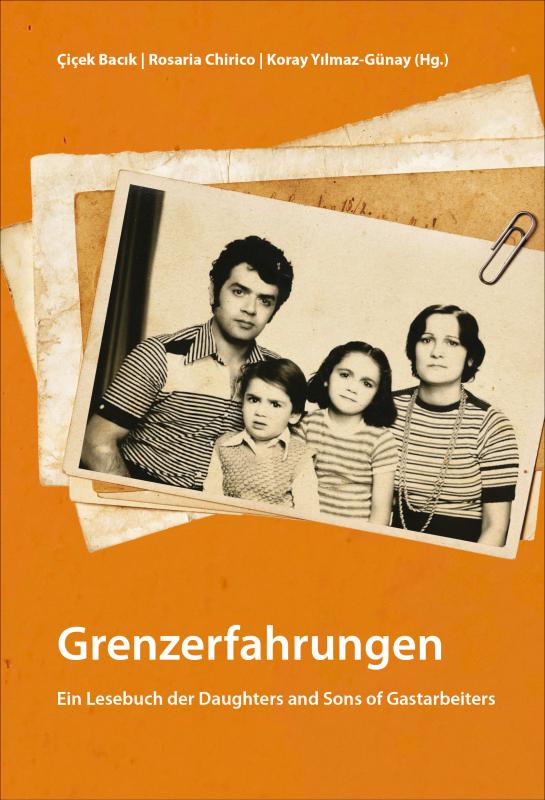 Ab Mitte der 1950er-Jahre leisteten Gastarbeiter*innen einen erheblichen Beitrag zum wirtschaftlichen Aufschwung in Deutschland. In die Erinnerungkultur haben es die Menschen und ihre Leistungen bis heute aber kaum geschafft. Nun erzählen Kinder und Kinderskinder der “ersten Generation” Geschichten von “damals”. Sie lassen Arbeits-,Wohn- und Lebensverhältnisse aufleben – und erzählen vom Erreichen und Überqueren von Grenzen aller Art: zwischen Generationen, Ländern und Menschen.
Ab Mitte der 1950er-Jahre leisteten Gastarbeiter*innen einen erheblichen Beitrag zum wirtschaftlichen Aufschwung in Deutschland. In die Erinnerungkultur haben es die Menschen und ihre Leistungen bis heute aber kaum geschafft. Nun erzählen Kinder und Kinderskinder der “ersten Generation” Geschichten von “damals”. Sie lassen Arbeits-,Wohn- und Lebensverhältnisse aufleben – und erzählen vom Erreichen und Überqueren von Grenzen aller Art: zwischen Generationen, Ländern und Menschen.
7. Hidden San Francisco. Hidden San Francisco: A Guide to Lost Landscapes, Unsung Heroes and Radical Histories. Chris Carlsson. Pluto Press. 2020.
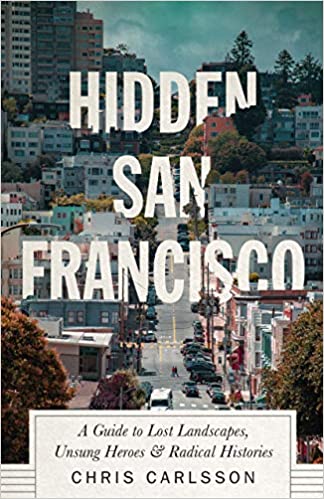
San Francisco is an iconic and symbolic city. But only when you look beyond the picture-postcards of the Golden Gate Bridge and the quaint cable cars do you realise that the city’s most interesting stories are not the Summer of Love, the Beats or even the latest gold rush in Silicon Valley.
Hidden San Francisco is a guidebook like no other. Structured around the four major themes of ecology, labour, transit and dissent, Chris Carlsson peels back the layers of San Francisco’s history to reveal a storied past: behind old walls and gleaming glass facades lurk former industries, secret music and poetry venues, forgotten terrorist bombings, and much more. Carlsson delves into the Bay Areas long prehistory as well, examining the region’s geography and the lives of its inhabitants before the 1849 Gold Rush changed everything, setting in motion the clash between capital and labour that shaped the modern city.
From the perspective of the students and secretaries, longshoremen and waitresses, Hidden San Francisco uncovers dozens of overlooked, forgotten and buried histories that pulse through the streets and hills even today, inviting the reader to see themselves in the middle of the ongoing, everyday process of making history together.
8. Setting Sights: Histories and Reflections on Community Armed Self-Defense. Edited by Scott Crow, foreword by Ward Churchill. PM Press. 2018.
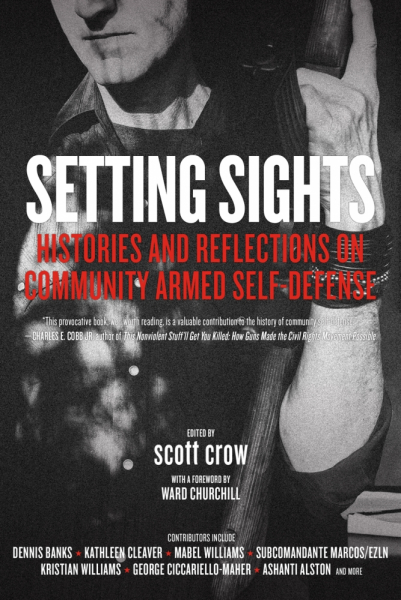 Decades ago, Malcolm X eloquently stated that communities have the legitimate right to defend themselves “by any means necessary” with any tool or tactic, including guns. This wide-ranging anthology uncovers the hidden histories and ideas of community armed self-defense, exploring how it has been used by marginalized and oppressed communities as well as anarchists and radicals within significant social movements of the twentieth and twenty-first centuries.
Decades ago, Malcolm X eloquently stated that communities have the legitimate right to defend themselves “by any means necessary” with any tool or tactic, including guns. This wide-ranging anthology uncovers the hidden histories and ideas of community armed self-defense, exploring how it has been used by marginalized and oppressed communities as well as anarchists and radicals within significant social movements of the twentieth and twenty-first centuries.
Far from a call to arms, or a “how-to” manual for warfare, this volume offers histories, reflections, and questions about the role of firearms in small collective defense efforts and its place in larger efforts toward the creation of autonomy and liberation.
Featuring diverse perspectives from movements across the globe, Setting Sights includes vivid histories and personal reflections from both researchers and those who participated in community armed self-defense. Contributors include Dennis Banks, Kathleen Cleaver, Mabel Williams, Subcomandante Marcos, Kristian Williams, George Ciccariello-Maher, Ashanti Alston, and many more.
9. Solitary: Unbroken by Four Decades in Solitary Confinement. My Story of Transformation and Hope. Albert Woodfox. Text Publishing. 2019.
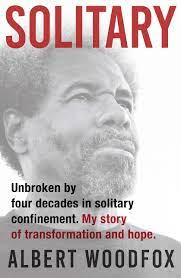
Solitary is the unforgettable life story of a man who served more than four decades in solitary confinement—in a 6-foot by 9-foot cell, 23 hours a day, in notorious Angola prison in Louisiana—all for a crime he did not commit. That Albert Woodfox survived was, in itself, a feat of extraordinary endurance against the violence and deprivation he faced daily. That he was able to emerge whole from his odyssey within America’s prison and judicial systems is a triumph of the human spirit, and makes his book a clarion call to reform the inhumanity of solitary confinement in the U.S. and around the world.
Arrested often as a teenager in New Orleans, inspired behind bars in his early twenties to join the Black Panther Party because of its social commitment and code of living, Albert was serving a fifty-year sentence in Angola for armed robbery when on April 17, 1972, a white guard was killed.
Albert and another member of the Panthers were accused of the crime and immediately put in solitary confinement by the warden.
Without a shred of actual evidence against them, their trial was a sham of justice that gave them life sentences in solitary. Decades passed before Albert gained a lawyer of consequence; even so, sixteen more years and multiple appeals were needed before he was finally released in February 2016.
Remarkably self-aware that anger or bitterness would have destroyed him in solitary confinement, sustained by the shared solidarity of two fellow Panthers, Albert turned his anger into activism and resistance. The Angola 3, as they became known, resolved never to be broken by the grinding inhumanity and corruption that effectively held them for decades as political prisoners. He survived to give us Solitary, a chronicle of rare power and humanity that proves the better spirits of our nature can thrive against any odds.
10. Making Revolution: My Life in the Black Panther Party. Field Marshal Don Cox. Heyday. 2021.
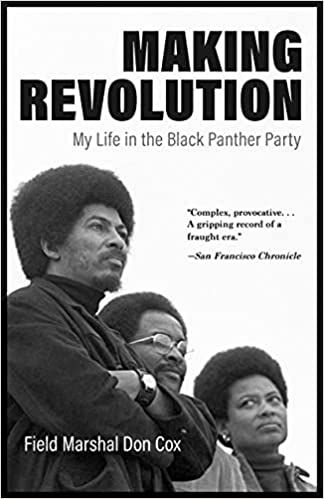 For the first time in paperback, a powerful and raw glimpse behind the scenes of the Black Panther Party. Making Revolution is Don Cox’s revelatory, even incendiary account of his years in the Black Panther Party. He had participated in many peaceful Bay Area civil rights protests but hungered for more militant action. His book tells the story of his work as the party’s field marshal in charge of gunrunning to planning armed attacks—tales which are told for the first time in this remarkable memoir—to his star turn raising money at the Manhattan home of Leonard Bernstein (for which he was famously mocked by Tom Wolfe in Radical Chic and Mau-Mauing the Flak Catchers), to his subsequent flight to Algeria to join Eldridge Cleaver in exile, to his decision to leave the party following his disillusionment with Huey P. Newton’s leadership. Cox would live out the rest of his life in France, where he wrote these unrepentant recollections in the early 1980s, enjoining his daughter to promise him that she would do everything she could to have them published.
For the first time in paperback, a powerful and raw glimpse behind the scenes of the Black Panther Party. Making Revolution is Don Cox’s revelatory, even incendiary account of his years in the Black Panther Party. He had participated in many peaceful Bay Area civil rights protests but hungered for more militant action. His book tells the story of his work as the party’s field marshal in charge of gunrunning to planning armed attacks—tales which are told for the first time in this remarkable memoir—to his star turn raising money at the Manhattan home of Leonard Bernstein (for which he was famously mocked by Tom Wolfe in Radical Chic and Mau-Mauing the Flak Catchers), to his subsequent flight to Algeria to join Eldridge Cleaver in exile, to his decision to leave the party following his disillusionment with Huey P. Newton’s leadership. Cox would live out the rest of his life in France, where he wrote these unrepentant recollections in the early 1980s, enjoining his daughter to promise him that she would do everything she could to have them published.
11. The Revolution Has Come. Black Power, Gender, and the Black Panther Party in Oakland. Robyn C. Spencer. Duke University Press. 2016.
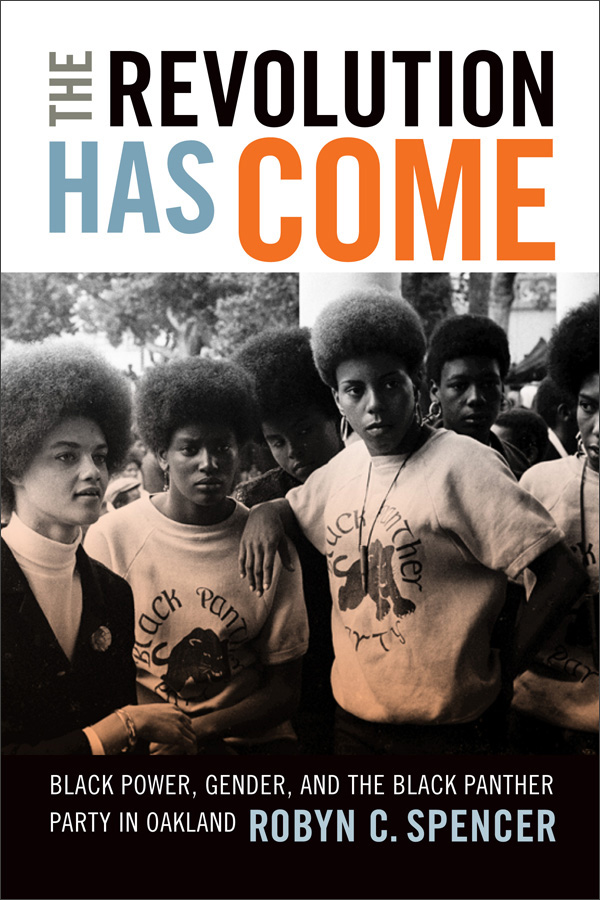 In The Revolution Has Come Robyn C. Spencer traces the Black Panther Party’s organizational evolution in Oakland, California, where hundreds of young people came to political awareness and journeyed to adulthood as members. Challenging the belief that the Panthers were a projection of the leadership, Spencer draws on interviews with rank-and-file members, FBI files, and archival materials to examine the impact the organization’s internal politics and COINTELPRO’s political repression had on its evolution and dissolution. She shows how the Panthers‘ members interpreted, implemented, and influenced party ideology and programs; initiated dialogues about gender politics; highlighted ambiguities in the Panthers‘ armed stance; and criticized organizational priorities. Spencer also centers gender politics and the experiences of women and their contributions to the Panthers and the Black Power movement as a whole. Providing a panoramic view of the party’s organization over its sixteen-year history, The Revolution Has Come shows how the Black Panthers embodied Black Power through the party’s international activism, interracial alliances, commitment to address state violence, and desire to foster self-determination in Oakland’s black communities.
In The Revolution Has Come Robyn C. Spencer traces the Black Panther Party’s organizational evolution in Oakland, California, where hundreds of young people came to political awareness and journeyed to adulthood as members. Challenging the belief that the Panthers were a projection of the leadership, Spencer draws on interviews with rank-and-file members, FBI files, and archival materials to examine the impact the organization’s internal politics and COINTELPRO’s political repression had on its evolution and dissolution. She shows how the Panthers‘ members interpreted, implemented, and influenced party ideology and programs; initiated dialogues about gender politics; highlighted ambiguities in the Panthers‘ armed stance; and criticized organizational priorities. Spencer also centers gender politics and the experiences of women and their contributions to the Panthers and the Black Power movement as a whole. Providing a panoramic view of the party’s organization over its sixteen-year history, The Revolution Has Come shows how the Black Panthers embodied Black Power through the party’s international activism, interracial alliances, commitment to address state violence, and desire to foster self-determination in Oakland’s black communities.
12. Imperio y resistencias: Noticias desde Rusia, Ucrania, Kazajistán, Bielorrusia. Autoría colectiva. Descontrol. 2022.
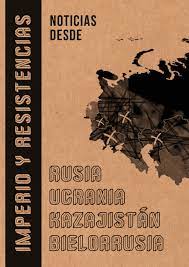 La geopolítica internacional siempre ha sido el tablero donde juegan los Estados. Parecería que las corrientes revolucionarias solo pueden mantener su coherencia en el plano “interior”, y que al llegar a la escena internacional deben necesariamente posicionarse alrededor de alguno de los polos de poder imperialista.
La geopolítica internacional siempre ha sido el tablero donde juegan los Estados. Parecería que las corrientes revolucionarias solo pueden mantener su coherencia en el plano “interior”, y que al llegar a la escena internacional deben necesariamente posicionarse alrededor de alguno de los polos de poder imperialista.
El actual conflicto en Ucrania muestra una vez más las contradicciones y la dificultad de encontrar apuestas estratégicas claras ante conflictos internacionales entre Estados.
Para poder navegar en esas aguas es necesario conocer bien la situación, huir de las explicaciones fáciles de los medios de comunicación de masas (de uno y otro bando) y afilar al máximo el espíritu crítico. Y sobre todo: escuchar a las poblaciones afectadas y los movimientos de base que resisten.
Este libro urgente no pretende dar una conclusión clara, más bien buscamos aportar algunas informaciones que permitan avanzar hacia ella. Conocer las últimas actuaciones del imperialismo ruso tanto en el interior de su país como en las poblaciones aledañas puede ayudarnos a salir de la visión maniquea de un bando bueno y un bando malo.
